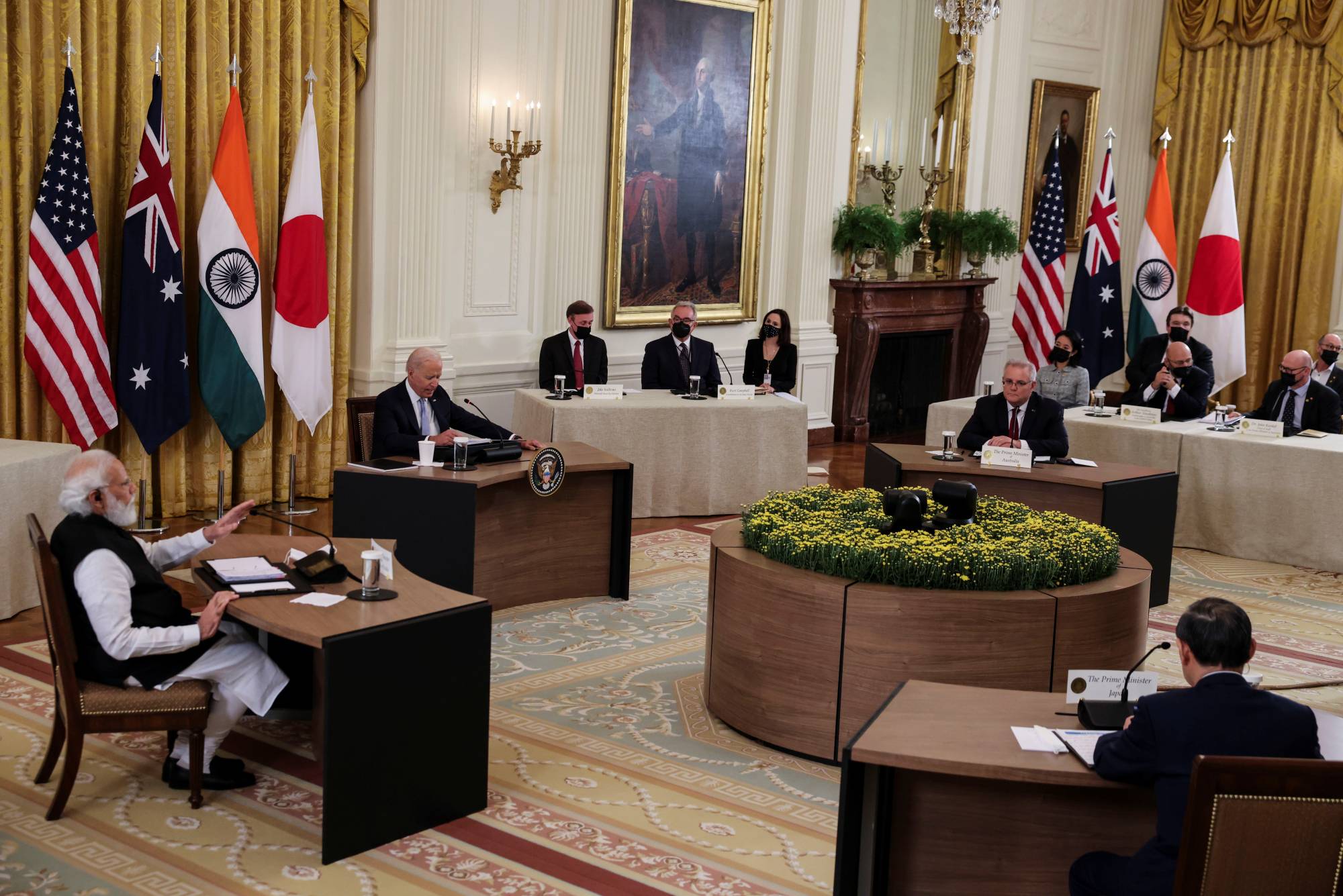When the "Quad" was first conceived as a strategic coalition of the Indo-Pacific’s four leading democracies, many doubted that it would amount to much.
Chinese Foreign Minister Wang Yi mocked it as a “headline-grabbing idea” that would dissipate “like the sea foam in the Pacific or Indian Ocean.” But continued Chinese expansionism, combined with former Japanese Prime Minister Shinzo Abe ’s determination to build broad resistance to it, has produced an increasingly consolidated group, with real potential to bolster regional security. The question is whether it will deliver.
One thing is certain: All four Quad members — Australia, India, Japan and the United States — are essential to realize the vision of a “free and open Indo-Pacific” introduced by Japan in 2016 and affirmed by the U.S. in 2017. While the Quad took some time to get off the ground — it was resurrected during U.S. President Donald Trump’s administration but leaders’ summits began only after Joe Biden took office — it has gained considerable momentum. Its members have held three summits since last year (two of them virtual) and are set to meet in person in Tokyo on May 24.


















With your current subscription plan you can comment on stories. However, before writing your first comment, please create a display name in the Profile section of your subscriber account page.